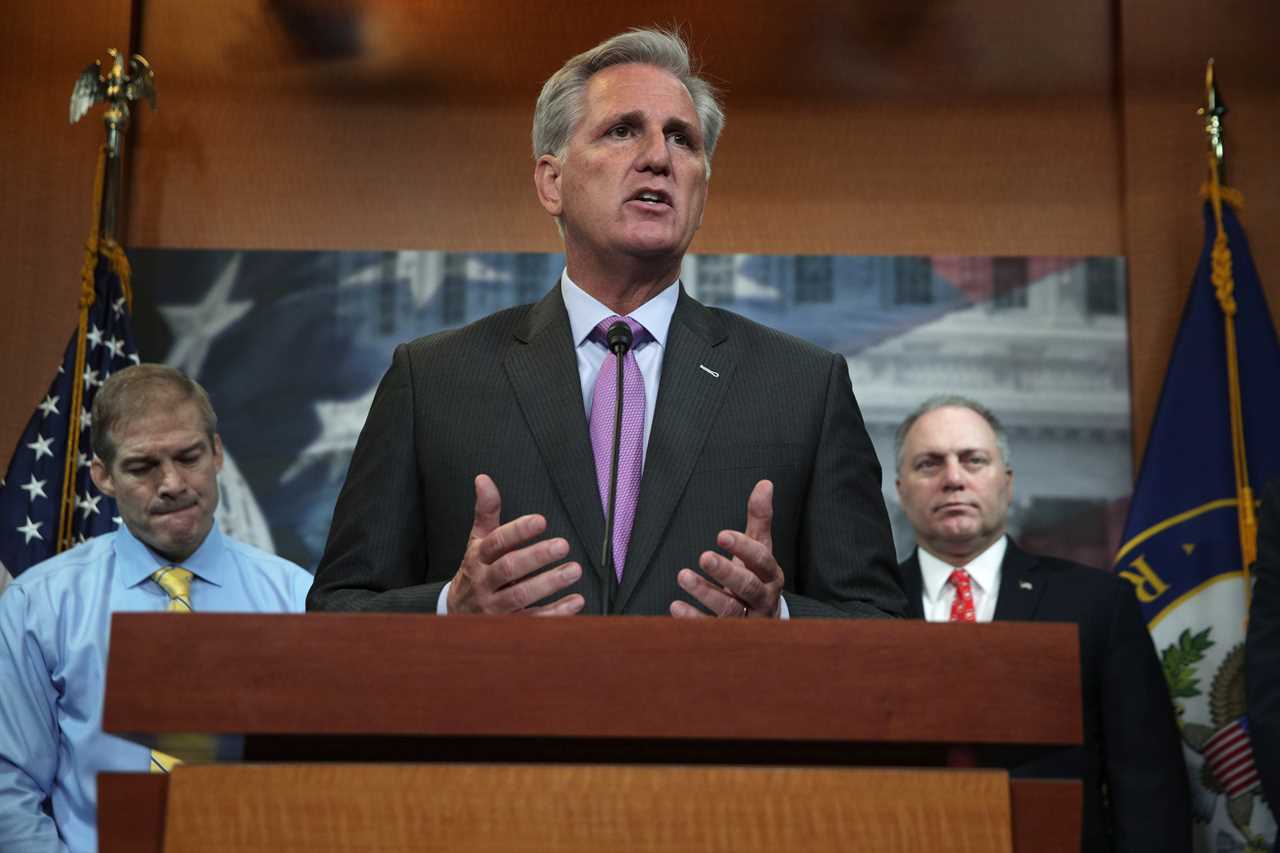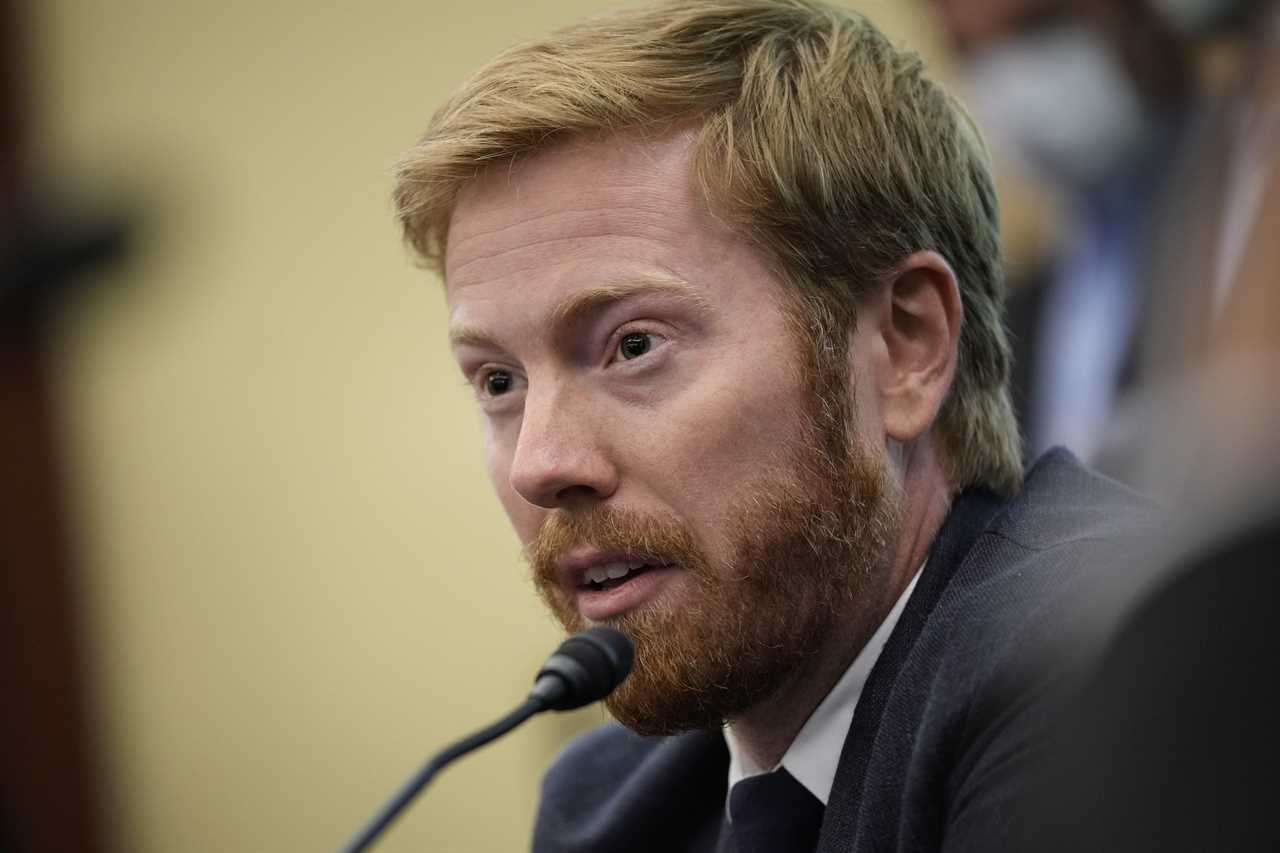
When Rep. Fred Upton announced his retirement from Congress, colleagues in both parties lined up to lament. The one who misses him the most, in the end, may be Kevin McCarthy.
The Michigan Republican's departure after 18 terms is the latest in a series of blows to the House's small but mighty group of GOP dealmakers, a loose bloc of lawmakers who — despite a party shifting rightward — still favor compromise over obstinacy. They will prove critical to Republican leaders’ ability to run the chamber next year should they win back the House as expected, regardless of the margin of that victory.
Those Republicans are the ones most certain to deliver needed votes to a future GOP speaker on everything from funding the government to working with President Joe Biden on their own legislative agenda. But as the numbers of GOP dealmakers dwindle ahead of next year, some in that group are openly speculating how they’ll find members to replace the losses of Reps. John Katko (R-N.Y.), Kevin Brady (R-Texas), Upton and others from McCarthy’s prospective governing coalition.
“We can't have this mindset of ‘burn the House down,’” said Rep. Don Bacon of Nebraska, another Republican with a bipartisan streak who plans to stick around next year. “We got to be a governing party when we're in the majority, so we need people like Upton and folks like that. So other people have to step up.”
The jolt from Upton’s retirement is less about protecting his seat, as it will likely stay in GOP hands, and more about the question before the House minority leader: What will the exodus of his centrists, as well as other senior Republicans who don’t see negotiation as a dirty word, mean for him next year? Republicans say McCarthy, the minority leader and undisputed frontrunner for speaker if the House flips, has begun conversations with his leadership team and other lawmakers about how to wrangle the conference on a smattering of issues after the chamber flips.
“We're gonna be in a majority, so it's not gonna be just about saying no to things anymore,” said Katko, who added that believes other members will fill the void as he and other practiced legislators depart. “We got to be able to bend a bit, and I think Kevin's talking about that already.”
Still, the Republican leadership team will be dealing with a conference that’s clearly gotten more populist and, well, Trumpian over the four years since the party last controlled the House.
One example of how much the House GOP has changed: Out of 133 members who voted to raise the debt limit the last time their party held the majority, only 33 are seeking reelection this fall. And not all of them are guaranteed to be in Congress come January; two of those deal-making Republicans, Reps. David McKinley of West Virginia and Rodney Davis of Illinois, are facing tough member-on-member primary battles.
And for McKinley, at least, it’s becoming a test of GOP voters’ appetite for bipartisanship for when the party does seize power, likely in January. In all, at least six of the 13 Republicans who voted for last year's cross-aisle infrastructure bill won’t be returning next Congress, including long-serving Rep. Don Young of Alaska, who died last month. Several more face difficult reelection bids thanks to their states' once-a-decade redistricting process.
It's far from clear who will replace those Republicans and what brand of politics the new members will bring — a stark reminder of how much the current primary season will shape the direction of the House GOP conference for the next two years.
In Texas' primaries, for example, GOP leaders avoided multiple scenarios in which an ultraconservative Republican could have won. Morgan Luttrell, backed by McCarthy, won the primary for Brady's seat after a showdown between House Republican leaders and their most headline-grabbing Trump acolytes. Reps. Madison Cawthorn (R-N.C.) and Marjorie Taylor Greene (R-Ga.) endorsed Chris Collins, who ultimately lost the race to Luttrell.
Another leadership favorite, Wesley Hunt, won out in the state’s new Houston area-seat, where he easily defeated GOP activist Mark Ramsey. And in North Texas, a third closely watched primary rapidly shifted from a battle over ousting Rep. Van Taylor to a push to replace him after the GOP incumbent resigned amid a sex scandal. Former Collin County Judge Keith Self ultimately prevailed over businesswoman Suzanne Harp, whose son is a top aide to Cawthorn.
While Texas was a bright spot for McCarthy, he won't be able to sidestep new MAGA members in his ranks next year from other states. Part of the reason for that is redistricting — members' willingness to strike deals often comes from the purple nature of their districts as much as their personal politics, and those districts are shrinking this year as map-drawing state Republicans have tried to narrow the playing field.
Losing members like Katko, Brady, Young, Upton and Rep. Tom Reed (R-N.Y.) does more than rob McCarthy of possible avenues for bipartisanship; it also deprives the conference of institutional knowledge after a stretch of turbulence marked by two impeachments, a global pandemic and an attack on the Capitol. Together, the five members named above brought roughly 150 years of experience serving in the House.
“I think there's always a strong benefit to having people who can reach back and say, ‘You know what, I remember when this happened 20 years ago,’” said first-term Rep. Peter Meijer (R-Mich.), pointing to Katko's and Upton's "wisdom and sage experience."

But he added that as much as his departing colleagues will be missed, the ebb and flow of retirements and new additions helps prevent the body from becoming stagnant.
Meijer noted that his freshman class, which was sworn in amid the height of the pandemic and just days ahead of the insurrection on Jan. 6, 2021, doesn’t know what “regular order looks like” — and that much of the House has changed significantly since there was regular order.
McCarthy has promised to try to reverse some institutional changes House Democrats made should he take power, including ending proxy voting and removing metal detectors installed outside the chamber after the attack on the Capitol.
"We have changed more of the history in Congress than at any time of any Congress under one party and one rule,” McCarthy said in November, hitting Democrats.
But that doesn’t mean the speaker-in-waiting isn't prepared to use the tools that current Speaker Nancy Pelosi has employed against some of his more troublesome conservatives; he's already vowed to boot several Democrats from their committees.
Despite all the change the House has seen since 2018, and an ideological band of Congress stretched ever tighter by bitter partisan polarization, some Republicans on their way out remain optimistic that the institution will snap back rather than bust apart.
“I just hope and pray that people come along and pick up the mantle of what we've done,” Katko said.
----------------------------------------
By: Sarah Ferris and Olivia Beavers
Title: Seeking: GOP dealmakers who won't 'burn the House down'. Apply to: Kevin McCarthy.
Sourced From: www.politico.com/news/2022/04/15/gop-dealmakers-house-kevin-mccarthy-00025261
Published Date: Fri, 15 Apr 2022 03:30:00 EST






